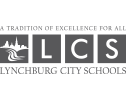Published on Wed., September 11, 2024
Lynchburg City Schools (LCS) believes that education is key to the success of our students. We also understand that education and health go hand in hand. It’s our priority to keep LCS students, families, and staff as healthy as possible in order to foster a conducive learning environment for all.
We understand balancing work, life, and caring for children can be challenging, especially when they get sick. This guide provides directives and recommendations to help parents and staff members determine when to keep a child at home and when to send them back to school.
- Respiratory Virus: Students with respiratory viruses such as influenza (flu), COVID-19, respiratory syncytial virus (RSV), and the common cold can return to school when, for at least 24 hours, both are true: their symptoms are getting better overall and they have not had a fever (without using fever-reducing medication).
- Lice: If your child has lice, they must receive treatment before returning to school. Upon returning to school, the school nurse must confirm that the student’s scalp and hair are cleared of all nits. LCS has a no-nit policy. (Please see School Board Policy JHC-RZ.)
- Strep Throat: If your child has been diagnosed with strep throat, they should not return to school until 24 hours after antibiotics have been started.
- Vomiting/Diarrhea: If your student has been vomiting or having diarrhea, please make sure they stay at home until the vomiting and/or diarrhea has stopped for 24 hours.
- Fever: If your student has a fever of 100.0 or greater, please keep them at home until they have been fever-free for 24 hours without the use of fever-reducing medications.
- Pink Eye: If your child has bacterial conjunctivitis, or pink eye, they should stay at home for 24 hours after receiving their first dose of antibiotic eye drops or ointment.
- Chickenpox: All lesions must be dried and crusted over before a student may return to school. The school nurse will need to evaluate the student in the clinic before they can be cleared for re-entry.
- Ringworm: If your student shows symptoms of ringworm, please follow up with your healthcare provider for appropriate treatment. Infected areas should be covered completely with dry gauze and secured with tape on all sides.
- Hand-Foot-and-Mouth-Disease: Students are most contagious the first week of infection. The student should not return until they are deemed no longer contagious by a healthcare provider.
Click here for a downloadable pdf of the Student Illness Guidelines.

